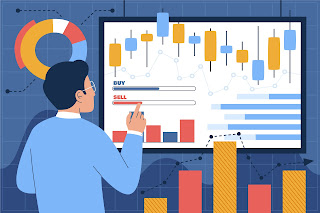The Complete Guide to Understanding Commodity Trading
Commodity trading buying and selling is one of the oldest forms of
trading. Trading can be defined in different ways. But when it comes to
commodities trading, there are few things that cannot be ignored.
Commodity trading is a complex market where a slight change in the
market can have a major effect on returns. Not only is this a complex
market, but commodity trading is also a vast market where there is a lot
of variety in terms of products and traders. However, if you want to be
a trader of any kind, understanding commodity trading is of utmost
importance. This guide will help you understand everything about
commodity trading.
What is the Commodity Market?
The commodity market is a market that trades in primary products.
The term commodity comes from the Latin "commodum", meaning "useful
things". Commodities are most often raw materials (such as food or
metals), agricultural products, or fuels.
The commodity market is a large and extremely liquid market where
different commodities, such as wheat, oil, gold, and silver, are traded.
These commodities can either be traded as derived products such as gold
futures or as the actual product such as oil. There are futures and
options exchanges for many commodities, such as corn, sugar, and
soybeans.
What are the basic fundamentals of commodity trading?
Trading commodities is one of the most common ways to earn money.
Commodity trading is basically the act of buying and selling
commodities. It is quite popular in the world of finance.
Trading commodities is a type of trading activity where the investor
trades the commodities directly or can tips and advice from best MCX tips provider
or commodity advisory company. Unlike trading stocks and shares,
commodities trading offers a high risk and high return opportunity for
investors. The commodities market is a place where you can trade in a
variety of goods, from energy to metals. When you trade commodities, you
are purchasing goods in the present and expecting to sell them in the
future at a higher price. In trading commodities, you can buy and sell
the physical goods or the futures of the goods.
What are the different types of commodities available in the market?
Commodities are an essential part of our life and we need them to
survive. Whether we need food, fuel, clothing, and the like, we
generally buy them. Companies and traders make money by buying and
selling them and this is known as commodity trading. Commodities can be
broadly divided into two types: soft commodities and hard commodities.
Commodities are a major part of any economy. It can be anything from
coffee to gold, oil to silver, wheat to corn, and so on. Commodities
are essential for our day to day activities. These commodities can be
classified into different types depending on the source and the
different uses that they have. Based on the source, we can classify
commodities into two broad categories: Primary Commodities and Secondary
Commodities.
What are the reasons to trade commodities?
Commodity trading is one of the oldest forms of trade, and it is
also one of the most lucrative. Commodity trading can be a highly
profitable enterprise for those with the understanding and the know-how
to succeed in the commodity market. Commodity traders buy and sell a
variety of raw materials, such as wheat, corn, gold, and sugar on a
regular basis. They can do this over short periods of time, or they may
make a living buying and selling on a regular basis. The purpose of
commodity trading is to make a profit, and it requires a certain level
of skill and understanding of the markets. Commodities trading requires a
high amount of research and technical analysis to succeed. For
technical analysis and research of commodity market you can take advice
from any India's best stock advisory company.
Conclusion
Although the commodity market has recently received a lot of
attention, it is still not understood by many people. If you are
interested in trading commodities, then this guide has everything you
need to know about this market.
Thank you for reading, we hope that this post has been helpful to you!





Comments
Post a Comment